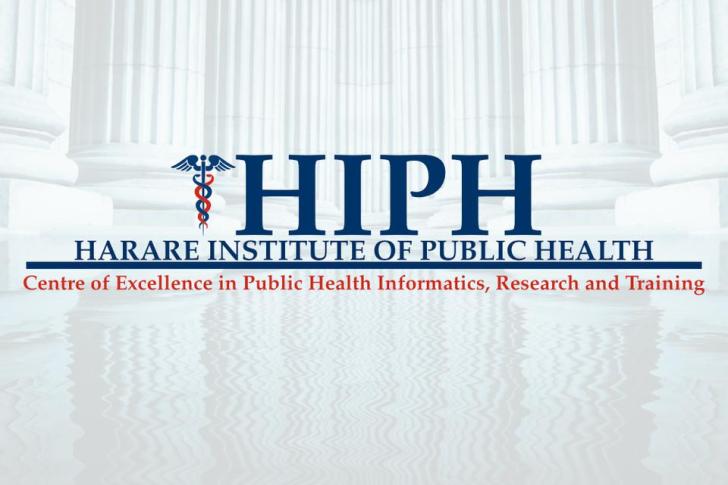News / National
Harare Institute's Bulawayo campus opens 2025 intake
06 Jul 2025 at 20:11hrs | Views

The Harare Institute of Public Health (HIPH) has announced the opening of applications for its August 2025 intake at its Bulawayo campus, with classes set to begin on August 4.
The expansion to Bulawayo marks a significant milestone for the institution, which is fast establishing itself as a key player in public health education and research in Zimbabwe. HIPH offers a broad array of programmes across various schools including Health Technology, Nursing, Pharmacy, Business, and Community Health.
Among the courses on offer are Pharmacy Technology, Biomedical Engineering, Accounting, Dispensary Assistant, Nursing Assistant, and Public Health. Applications are now open to students across Zimbabwe and the region.
HIPH Principal Mr Amos Marume said the institution is committed to bridging skills gaps in public health by offering practical and inclusive education options through Technical and Vocational Education and Training (TVET).
"We are actively promoting TVET in the health sciences. Our goal is to develop skills-based courses and vocational pathways that address gaps identified during recent Ministry of Higher and Tertiary Education audits," said Mr Marume.
He noted that expanding to Bulawayo will give local students access to previously unavailable TVET programmes such as pharmacy assistance, veterinary assistance, nursing, and disease surveillance.
A key innovation at HIPH is the development of a disease surveillance software system that can map and predict health trends up to a decade into the future. The system is being enhanced with more data and integrated with Artificial Intelligence (AI) to strengthen public health response and research capabilities.
"We're embracing AI to advance discovery research and improve healthcare solutions," Marume added. "This modernised approach also enables us to collaborate with local and international partners more effectively."
HIPH also offers the National Foundation Certificate (NFC), designed to accommodate students without O-level qualifications. The NFC acts as a stepping stone into formal health education and has already produced successful graduates in nursing, pharmacy, and related fields.
"We're opening doors for many who thought higher education was beyond their reach," said Mr Marume. "Our focus is inclusivity-every Zimbabwean deserves the opportunity to advance."
Registered with the Higher Education Examination Council (Hexco), HIPH ensures all its qualifications meet national standards for quality and recognition. The institution's emphasis on health science education is tailored to help students pursue further studies and professional careers.
Looking ahead, HIPH plans to open new campuses in Mutare and Chinhoyi, adding to its existing centres in Harare and Gweru. The institution hopes to continue playing a central role in strengthening Zimbabwe's healthcare workforce and contributing to the continent's public health development.
The expansion to Bulawayo marks a significant milestone for the institution, which is fast establishing itself as a key player in public health education and research in Zimbabwe. HIPH offers a broad array of programmes across various schools including Health Technology, Nursing, Pharmacy, Business, and Community Health.
Among the courses on offer are Pharmacy Technology, Biomedical Engineering, Accounting, Dispensary Assistant, Nursing Assistant, and Public Health. Applications are now open to students across Zimbabwe and the region.
HIPH Principal Mr Amos Marume said the institution is committed to bridging skills gaps in public health by offering practical and inclusive education options through Technical and Vocational Education and Training (TVET).
"We are actively promoting TVET in the health sciences. Our goal is to develop skills-based courses and vocational pathways that address gaps identified during recent Ministry of Higher and Tertiary Education audits," said Mr Marume.
He noted that expanding to Bulawayo will give local students access to previously unavailable TVET programmes such as pharmacy assistance, veterinary assistance, nursing, and disease surveillance.
A key innovation at HIPH is the development of a disease surveillance software system that can map and predict health trends up to a decade into the future. The system is being enhanced with more data and integrated with Artificial Intelligence (AI) to strengthen public health response and research capabilities.
"We're embracing AI to advance discovery research and improve healthcare solutions," Marume added. "This modernised approach also enables us to collaborate with local and international partners more effectively."
HIPH also offers the National Foundation Certificate (NFC), designed to accommodate students without O-level qualifications. The NFC acts as a stepping stone into formal health education and has already produced successful graduates in nursing, pharmacy, and related fields.
"We're opening doors for many who thought higher education was beyond their reach," said Mr Marume. "Our focus is inclusivity-every Zimbabwean deserves the opportunity to advance."
Registered with the Higher Education Examination Council (Hexco), HIPH ensures all its qualifications meet national standards for quality and recognition. The institution's emphasis on health science education is tailored to help students pursue further studies and professional careers.
Looking ahead, HIPH plans to open new campuses in Mutare and Chinhoyi, adding to its existing centres in Harare and Gweru. The institution hopes to continue playing a central role in strengthening Zimbabwe's healthcare workforce and contributing to the continent's public health development.
Source - Sunday News

























.jpg)














